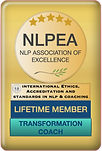
Sports Perfomance Coaching
Applied Sports Psychology for Equestrians
Sports psychology is used more in competitive performance. It uses evidence-based techniques which helps equestrian coaches to maximise the psychological potential of their riders.
Sports psychology is used to help you build a calm and focused approach to competitions and eventing. It helps you perform from the inside out, by allowing less of the outside in.
It can help you with motivation and resilience, focus, performance anxiety, confidence, emotional control, performance routines and flow states (the state you need to be in to perform at your best).
I trained under Charlie Unwin, a renowned Sports and Performance Psychologist who’s coaching programmes are endorsed by the British Horse Society. You can find me listed on the Centre 10 website as an Advanced Applied Psychology Equestrian Coach.

The Qualifications I Hold
-
Master Transformation Coach
-
Master NLP Coach
-
Master Hypnotherapist
-
Advanced Applied Psychology Equestrian Coach
-
Master Empowered Equestrian Coach
-
Advanced Solution-Focused & Analytical Hypnotherapist
I am also insured with www.holisticinsurance.co.uk

Curious how these techniques could support your riding goals or life transformation? Whether you're navigating competition stress, seeking more balance, or ready to level up your mindset, our coaching is tailored to you.
Book a free, no-obligation discovery chat to explore what’s possible. We’ll talk through your challenges, your aspirations, and how our approach could help you ride stronger, think clearer, and feel more in control—on and off the horse.
Let’s connect. Your next chapter starts with a conversation.
![_ReducedDarkerHorse [1280].png](https://static.wixstatic.com/media/e5f548_810949e80a3243bb98bf9b1fbca437df~mv2.png/v1/crop/x_0,y_0,w_980,h_739,q_90,enc_avif,quality_auto/e5f548_810949e80a3243bb98bf9b1fbca437df~mv2.png)
